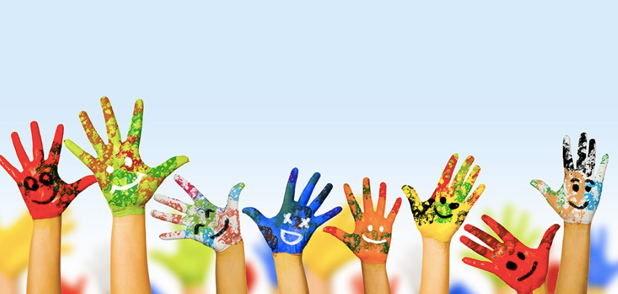"The Take 5! approach is teacher-friendly, an excellent staff development opportunity, and a valuable tool for parents."
Lorna Wuertz, Retired Teacher & Administrator, Marin County, California
Self-Regulation: It’s an Essential Capacity for Learning and Thriving
Take 5! Self-Reg Asset-Building promotes self-regulation capacities that enhance learning, mental wellness, healthy relationships & lifelong development. It is designed for educators who want to integrate self-regulation learning into everyday school life.
Take 5! promotes learning and thriving in all kids. And the same self-reg assets can buffer and prevent the impact of childhood adversity. For students and educators alike, it’s a win-win approach.
Highlights of the Take 5! Approach:
It’s easy to get started: With some introductory learning and a few practical resources, educators are ready to introduce Take 5! to their students. There’s no need to invest in additional – and often expensive – curricular resources. The Starter Kit for Educators gives you everything you need to begin introducing Take 5! to your students.
Maximizing those ‘teachable moments’: Supports educators to take advantage of those ‘teachable moments’ that arise during a typical day – opportunities to expand thinking, practice skills, and grow capacity. With simple, easy-to-use concepts and visuals, Take 5! helps educators integrate self-reg learning into everyday classroom activities.[1]
Versatile & flexible: Take 5! can be adapted to fit the child, the curriculum, and the circumstances. It builds on, and enhances, the existing knowledge and resources of the educator. And, if you’re already using other social-emotional learning (SEL) resources and tools, they’re easily integrated with the Take 5! approach.
A whole-child approach: Take 5! pays attention to all of the factors that influence a child’s ability to self-regulate, including sensory experience, body & brain, emotions, mind, relationships, and environment.
A self-regulation framework for all ages & stages: The Take 5! framework grows with children, starting in the early years … through elementary, middle and high school … and into young adulthood. The same framework informs professional development.
Child-centered and child-empowering: Working with a framework that kids can understand and make their own, children are encouraged to take charge of their own learning and practice. And, with lots of practice, there’s less need for adult intervention.
Engaging parents and community: An asset-building approach is the ideal way to involve parents and other family & community members. It’s also a great way to build collegial connections among educators and other professionals that support children, youth and families.
In sync with CASEL’s Core Competencies: The Take 5! Self-Reg Asset-Building Framework enhances development of the core competencies identified by CASEL.[2]
Trauma-responsive practice: The same self-reg assets that generate health and wellness are known to buffer and prevent the effects of trauma and ACEs (Adverse Childhood Experiences). Take 5! integrates trauma-responsive practice with everyday SEL and self-regulation asset-building.
With Take 5!, thriving is the asset-building objective for all kids … even those who have had adverse experiences. The impact of ACEs can be offset when a child has a handful of self-reg ASSETs.
A Little Learning Goes a Long Way!
With a foundational one-day training session, educators are ready to take first steps to introduce Take 5! to the learners in their classroom or school, and to have fun with the asset-building activities in the Take 5! Starter Kit.
See link for more information on professional development offerings from Take 5! Institute.
Scope and Sequence for Educators
Take 5! offers a sequential and flexible approach to social and emotional learning ... here's the link to the Take 5! Scope and Sequence.

[1] Recent research shows that the most effective way to engage students in social-emotional learning is to make it part of everyday school life.
[2] The Collaboration for Academic, Social and Emotional Learning (CASEL) identifies five core competencies: self-awareness, social awareness, relationship skills, responsible decision-making, and self-management.